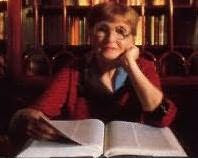A History of the Audio Book
by Alan Moore
Alan MooreLevel: PlatinumAlan Moore Copyright © 2007 Alan Moore/dracula-in-whitby.com Dracula in Whitby provides a unique tourist guide to the real Dracula story and his connection to Whitby, Yorkshire's unique ...
An audio book is a relatively new format and one that arouses skepticism in many people, especially if they have been brought up to appreciate the written word. This is unfortunate, because an audio book is very easy to use and, with the right hardware and software combination, many people could begin to appreciate a whole new world of story-telling and information.
It's fair to say that age plays an important role in the acceptance of audio books. Older folks, surprisingly, are often more inclined to accept the new format. The BBC has been broadcasting serialized classics on the radio for many years and so 'listening' to a story is not an unusual phenomenon for older people.
Also, we must be aware that the audio book has come a long way since Native American tribes were recorded by J.P.Harrington in 1933. He recorded the oral histories of these tribes so that future generations could enjoy them and also preserve a very important part of history.
Eventually, the 'Books for the Adult Blind Project' was created by the American Congress and led to the development of talking books for people with hearing disabilities. Soon, audio books were being made in their thousands and became a kind of public service. In fact, the National Library Service distributed millions of these audio books to blind people across the US.
How the Audio Book became part of Popular Culture
Above all other factors, technology made the audio book more widespread. Cassette recordings were favored in the 1960s and were easy to use and transport. Educational recordings became popular, especially those of a self-help nature.
The arrival of the compact disc (or CD) transformed the whole industry. As the industry matured, audio books became more polished and producers began to create higher quality recordings made in top recording studios. Actors were hired to do the voice-overs and soon the industry became a billion-dollar concern.
At the moment, the audio book is extremely popular and easily accessible by all people. The growth of the internet (and the increasing speeds available) has led to thousands of audio books being made available to download. Obviously, this is extremely convenient and makes popular recordings available at any time of night or day, and without the inconvenience of having to leave your home. The miniaturization of technology - mp3 players and phones - allows audio books to be enjoyed on the move as well. So, great classics by Shakespeare and Dickens are set to be heard by an even wider audience, perhaps even by those who might otherwise prefer to read comics.
Ironically, maybe the spread of audio books is leading many people back to reading the printed word. The worries of audio books replacing printed books is perhaps rather exaggerated, despite those who would say otherwise. There are times when ear-plugs, or headphones, simply don't cut-it and a good, traditional book is just the ticket. The physical dimension of a printed book, maybe with illustrations, takes some beating.
Both printed and audio books would seem to have their place in the world of literature!

No comments:
Post a Comment